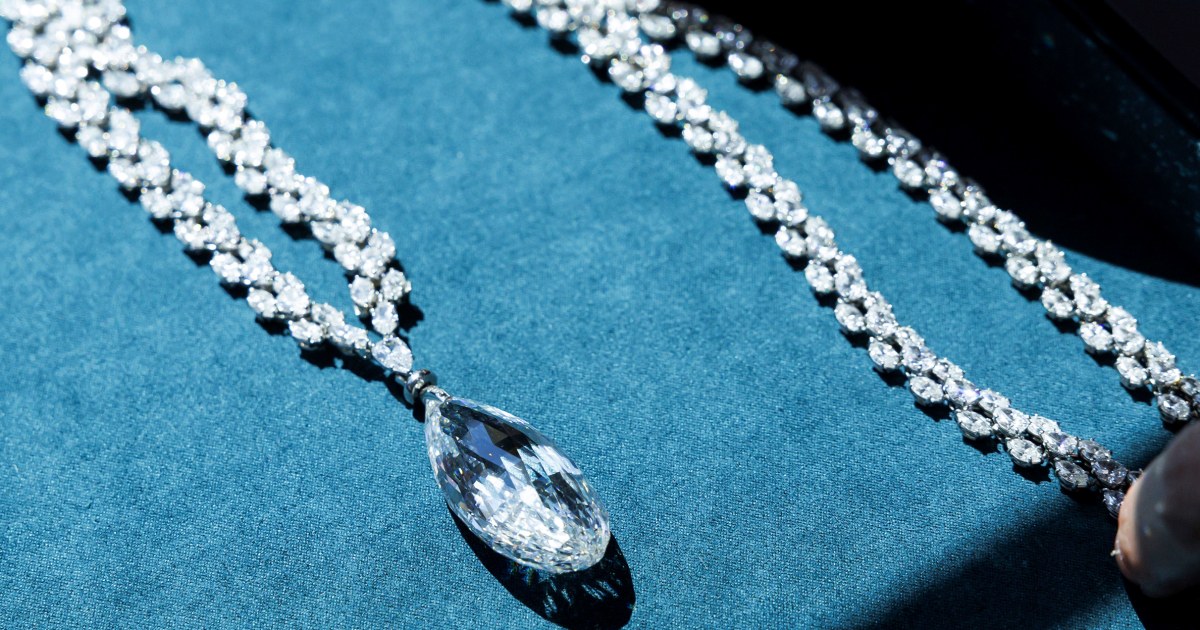A ruby ring and a diamond necklace sold for less than estimated before the sale at a Christie’s auction on Wednesday of a vast jewelry collection of a late Austrian heiress that was bought with wealth from a retail empire that dates back to the Nazi era in Germany. Jewish groups criticized the auction.
The auction house defended the sale of about 700 pieces of jewelry. saying the proceeds will go to charitable causes, including a Vienna art museum and medical research. The collection belonged to Heidi Horten, whose German husband built a retail empire beginning in the 1930s. She died last year.
Holocaust survivors’ and victims’ rights groups had urged Christie’s not to proceed with the sale.
The nearly 26-carat «Sunrise Ruby,» which Horten bought for the equivalent of about $30 million in 2015, sold for just over 13 million Swiss francs (about $14.6 million) on Wednesday, including the fees and «buyer’s premium». The estimate prior to the sale was that it fetch between 14 and 18 million francs.
Previously, the 90-carat «Briolette of India» diamond, the centerpiece of a necklace adorned with smaller diamonds, sold for 6.3 million francs, including fees. Its estimated presale range had been 9 million to 14 million francs.
Buyers of the two flagship items were not immediately identified.
Overall, Christie’s said Wednesday’s sale, the first in-person part of an auction that had already taken place online this month, fetched $156 million, above the low estimate for $139 million for the day’s event.
The sale has included sapphires, emeralds, pearls, diamonds and much more.
A final phase was set for Friday, but the main lots were offered on Wednesday.
The auction has brought controversy.
Christie’s rejected calls from some Jewish groups to withdraw the sale. He acknowledged that Heidi Horten received a «significant inheritance» from her husband, Helmut Horten, who died in 1987. She had bought Jewish businesses «sold under duress» during the Nazi era to build a retail empire. Christie’s said her actions had been «well documented».
Tens of thousands of Jewish-owned retail stores were “Aryanized” under the Nazis, and Jewish property values were depressed by boycott measures, propaganda attacks, and other pressure from authorities in 1930s Germany. . Many Jews received no compensation.
Business people like Horten could take advantage. He built most of his wealth after the war, but his department store brand was born in the Nazi period.
Christie’s said all the jewelry was purchased over more than 50 years, dating back to the early 1970s, more than a quarter century after the Nazis were ousted from power at the end of World War II. The auction house said it took over the collection with the understanding that all proceeds would go to charitable causes.
David Schaecter, president of the US Holocaust Survivors Foundation, to support the ‘charitable ends’ chosen by the speculator”.
«Mr. Horten’s fortune cannot be divorced from the murder of six million Jews, including one and a half million children,» Schaecter said in a statement emailed by the group’s lawyer. «In my opinion, anyone who buys these jewels will carry the blood of the Jewish victims of the Shoah around their necks or on their hands forever.»

